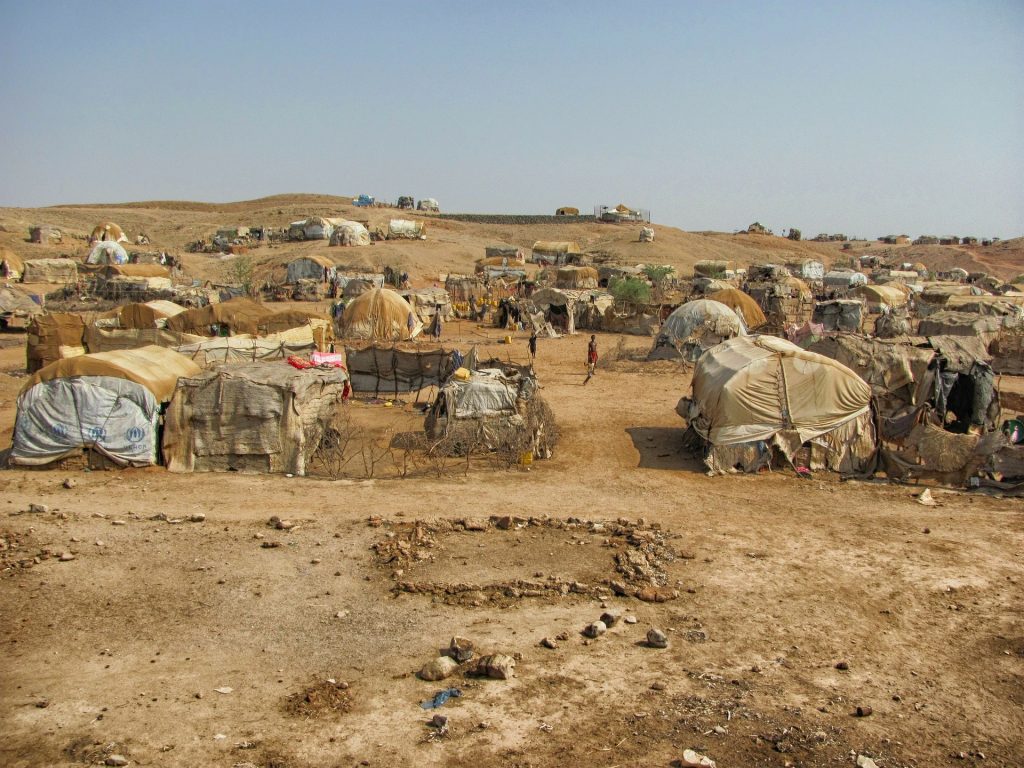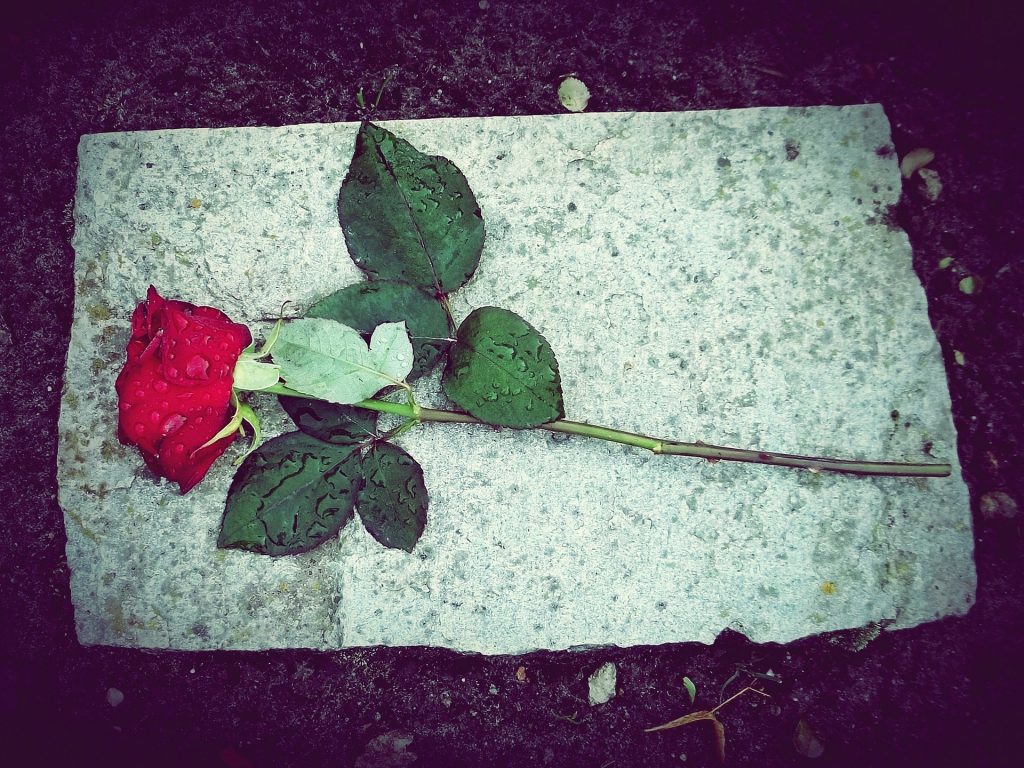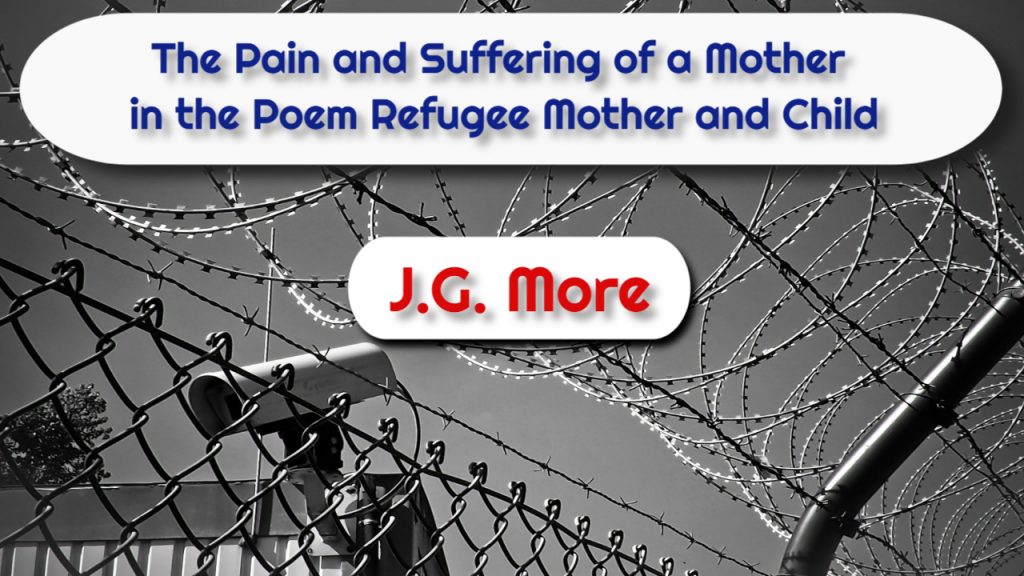The Pain and Suffering of a Mother in the Poem Refugee Mother and Child
Life and literature are interdependent. Literature represents life and we learn to live life from Literature. But sometimes literature represents life so effectively that for a moment our brain gets totally blank and all our senses get numbed. This kind of literary work has the potential to change our way of thinking. Today I am going to talk about such a literary work which actually falls into the genre of poetry and the name of that poem is Refugee mother and Child by Chinua Achebe. Poem has the power to melt our hearts as it is based on reality. It depicts the pain and suffering of a mother in a refugee camp.

To understand and study this poem it is important to know the background of this poem. The Nigerian civil war is one of the biggest tragedies in the world history. Nearly 1 million people died of starvation during the civil war. Many people lost their homes, property and loved ones and had to spend their lives in refugee camps during the civil war where there was no food, water or sanitization. Let’s read the poem first….
Refugee mother and Child by Chinua Achebe
No Madonna and child could touch
The picture of a mother’s tenderness
For a son she soon would have to forget.
The air was heavy with odours
Of diarrhoea of unwashed children
With washed out ribs and dried up
Bottoms struggling in laboured
Steps behind blown empty bellies.
Most mothers their had long ceased
To care but not this one; she held
A ghost smile between her teeth
And in her eyes the Ghost of a mother’s
pride as she combed the rust coloured
Hair left on his skull and then-
Singing in her eyes- began carefully
to part it…
In another life this
Would have been a little daily
Act of no consequence before his
Breakfast and school; now she
Did it like putting flowers
On a tiny grave.

Achebe describes the suffering and pain of a mother in such refugee camp. He says,
No Madonna and child could touch
The picture of a mother’s tenderness
For a son she soon would have to forget.
In this stanza he compares the love and tenderness of refugee mother for her child to the love and tenderness painted in the painting of Mother Mary for her Baby Jesus. (Madonna and child relate to the idea of Mother Mary and her Child Jesus) and he further says that the refugee mother would have to forget her child soon. Forgetting a child is impossible for any mother but this mother has to forget her child and we do not know why but eventually at the end of the poem we will know the reason.

In the second stanza he describes the atmosphere and the situation of the children in the refugee camp.
The air was heavy with odours
Of diarrhoea of unwashed children
With washed out ribs and dried up
Bottoms struggling in laboured
Steps behind blown empty bellies.
He says the atmosphere in the camp was filthy and was filled with odours of diarrhoea of those children who were dirty, malnourished with blown empty stomachs and had no energy to even walk. This is quite unimaginable for us because we see children around us full of energy and enthusiasm but the situation of children in that refugee camp was very different.

In the next stanza he describes the mother-
Most mothers their had long ceased
To care but not this one; she held
A ghost smile between her teeth
And in her eyes the Ghost of a mother’s
pride as she combed the rust coloured
Hair left on his skull and then-
Singing in her eyes- began carefully
to part it…
Here he says that other mothers in the camp have no energy left to care for their children but this mother is still taking care of her child. She has a ghost smile that is a ghost of a smile on her face which means her smile is dead but still she is trying to keep that smile on her face. She also has Ghost of mothers Pride in her eyes which refers to the memories of her being a proud mother. She is parting the rust (brown) coloured hair of her child. Rust represents decay. Here we get the idea that the child is having a very ill health most probably because of the severe malnutrition.

In the final stanza all our doubts are cleared and we get answers to all our questions.
In another life this
Would have been a little daily
Act of no consequence before his
Breakfast and school; now she
Did it like putting flowers
On a tiny grave.
In a normal life; the act of combing hair of the child before his breakfast and school would have been an easy task for her but the situation is different now because she is combing his hair like putting flowers on a tiny grave which means the child is actually dead and by combing his hair, she is saying her last goodbye to her child. Now remembering the death of the child would have been too difficult for her and that is the reason why the poet says at the beginning of the poem that the mother would have to forget her child. This kind of literary work gets stuck in our minds and paints an actual picture the scene Infront of our eyes.

